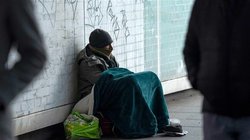 Chair of the UK Statistics Authority David Norgrove has dismissed government claims that it has managed to reduce rough sleeping, saying counts provided by council officials on the number of people gripped by acute homelessness cannot be trusted.
Chair of the UK Statistics Authority David Norgrove has dismissed government claims that it has managed to reduce rough sleeping, saying counts provided by council officials on the number of people gripped by acute homelessness cannot be trusted. RNA - In a letter sent Thursday to Nick Bourne, a member of Britain’s House of Lords, Norgrove said that his statement in the parliament claiming that rough sleeping had decreased by 19 percent in 83 councils in England could not be trusted because some councils might have skewed the latest homelessness figures.
Reports earlier this year suggested councils that received funds under government’s Rough Sleeping Initiative (RSI) had deliberately underreported the scale of the crisis in their areas.
Critics say councils have suddenly changed the methodology for counting rough sleepers to report a significant fall in the problem.
They say the counts have been provided using snapshots of the number of rough sleepers on a single night in autumn rather than a broader estimate of everyone about to bed down or already bedded down on the street, in doorways, parks, tents and sheds, but not hostels or shelters.
Based on the new methodology, councils reported up to 83 percent reduction in rough sleeping from 2017 to 2018 in areas like Southend, a claim which even caused Prime Minister Theresa May to boast about the success of her government’s measures on tackling the issue.
However, Norgrove said those figures could not be trusted until the government came up with an explanation as to why councils had tried to underreport the scale of rough sleeping in their areas after receiving RSI funding.
Britain has experienced a historic surge in poverty and homelessness under Conservative government over the past nine years. The United Nations has confirmed estimates that more than a fifth of UK population, around 14 million people, lives in poverty.
847/940